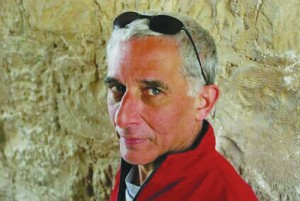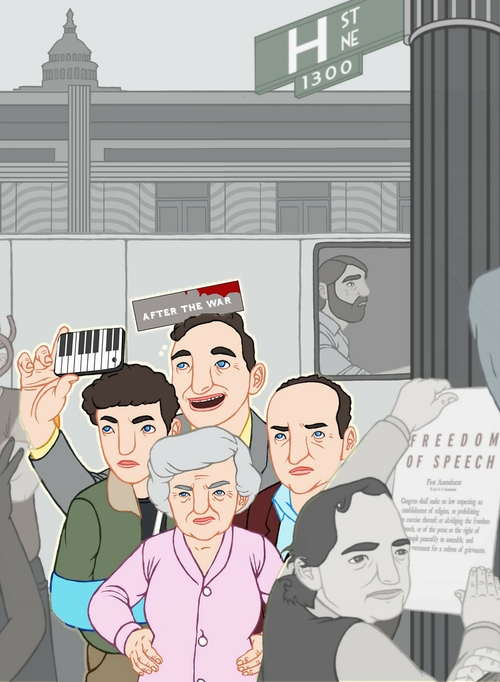 Our first edition is about Jerusalem focusing on The Temple Mount and is written by Danny
Seidemann. Who could find a better expert on Jerusalem? An attorney and world-renowned Jerusalem expert, Daniel
Seidemann is the director of Terrestrial Jerusalem, the NGO he founded.
Our first edition is about Jerusalem focusing on The Temple Mount and is written by Danny
Seidemann. Who could find a better expert on Jerusalem? An attorney and world-renowned Jerusalem expert, Daniel
Seidemann is the director of Terrestrial Jerusalem, the NGO he founded.
Contents:
- Since things heated up again in and around the Temple Mount/Haram al Sharif, there has been a lot of talk about the "Status Quo." Why is this the case?
- The term "Status Quo" implies a situation that is unchanging, but you say there have been changes in the Status Quo over the past 48 years. Can you explain what you mean?
- Can you be more specific?
- So the big question is: what is the Status Quo?
- OK, with that in mind, what is the closest thing to a non-controversial, consensus definition of the Status Quo?
- Working from that definition, what are the key elements of the Status Quo?
- How have access and entry changed over the years?
- What about access/entry for non-Muslims?
- Did any of this change with the 2014 and 2015 Amman Understandings?
- What about less visible elements of the Status Quo, like overall authority?
- What about coordination between Israel, the Waqf, and Jordan on matters related to the Temple Mount/Haram al Sharif?
- What about security at the site?
- Who decides when to open and close the site?
- The 2014 Amman understandings also dealt with security matters. Can you explain this?
- What about the 2015 Amman understandings?
- What is the PA's role on the Temple Mount/Haram al Sharif?
- Who is in charge of Maintenance & Archeology at the site?
- What happened in 1996?
- How have things been since that time?
- Rhetoric seems to play a huge part in stoking tensions around the Temple Mount/Haram al Sharif. Can you talk a little about that?
- In addition to the Amman Understandings of 2014 and 2015, what can/should be done to preserve/restore/calibrate the Status Quo, and prevent future eruptions of violence centered on the site?
- Any final thoughts?
|
A. DS: Any discussion of the Status Quo must, in the end, come back to the intangibles. When Israel claims that it has acted in a manner that respects the Status Quo, it is not without foundation; and when Jordan claims that Israel has acted in violation of the Status Quo, or that Israel is seeking to change the Status Quo, Jordan is likewise making a valid claim. While for the most part the technical components of the existing arrangement on the Temple Mount/Haram al Sharif have been maintained, there have been major shifts in the daily dynamics at the site. If, in the past, tensions were sparked by a specific event, in recent years the Temple Mount/Haram al Sharif has become the site of almost daily contention and provocation, even as, technically, the Status Quo has been largely maintained. The purpose of the Status Quo is to guarantee some kind of pragmatic equilibrium in which no stakeholder perceives its sacred equities at Temple Mount/Haram al Sharif as under threat. No check-list, however exhaustive, will suffice to catalogue these equities, and the maintenance of the Status Quo, however interpreted, cannot survive bad faith. In order for equilibrium to be maintained, there must be active promotion of a respectful discourse regarding both the Muslim and Jewish attachments to the site, embrace of a genuine sensitivity to the fears of the respective stakeholders, and pursuit of policies geared to neutralize the impact of the ever-present provocateurs. |



